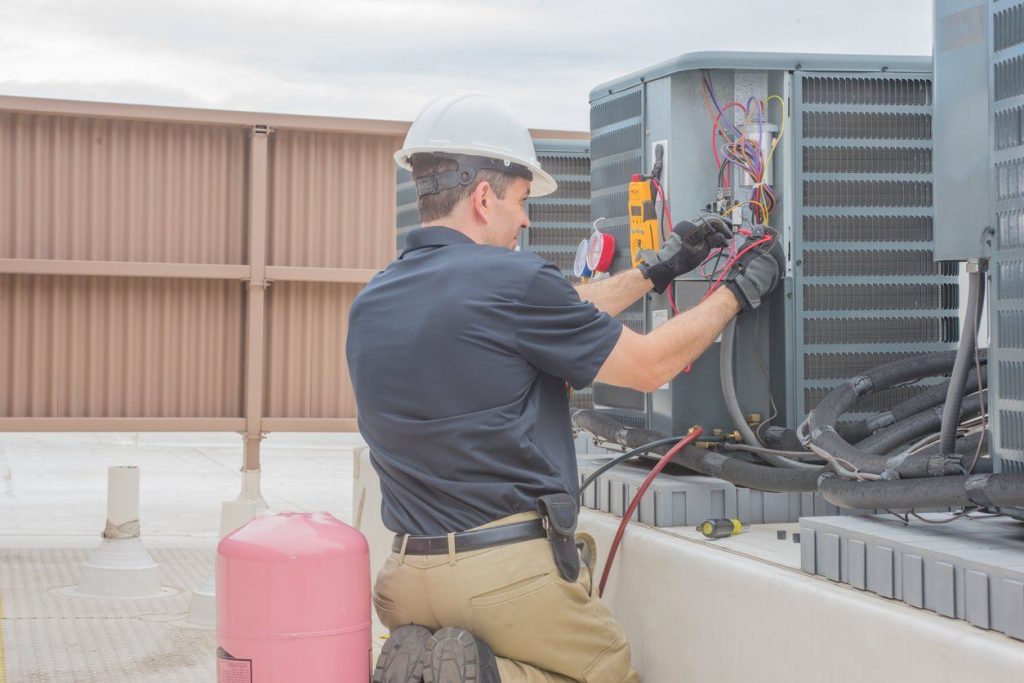
Central air conditioning or heat pumps with an air handler are commonplace in desert and tropical regions. You will be a better homeowner overall if you take the time to learn how your home’s heating, ventilation, and air conditioning systems function. To get the best air conditioner services to keep your AC in top position, visit https://www.airconservicing.org/.
When combined with HVAC systems, they regulate airflow to ensure a healthy and comfortable environment throughout the year. The air handler cabinet stores the HVAC system’s internal components and has space for ventilation, furthermore, the professionals at marvellous.sg provide all the air condition components servicings. Some options for improving indoor air quality and purification are electronic air filters, dehumidifiers and ultraviolet (UV) lights.
What Is The Function Of An Air Handler?
The air in your home is circulated using an air handler in conjunction with the rest of your HVAC system. Return duct, draws in outside air, which is then filtered and sent to the evaporated coil. A chemical called a refrigerant is housed in the evaporator coil. That stuff is what causes temperature changes in the atmosphere.
When the thermostats calls for hot air, the system pumps high-pressure, high-temperature gas refrigerant from the outdoor condenser into the indoor compressor. This will move through an evaporator coil and warm the air that is circulated around the space. The air is then distributed throughout your home through ductwork and a blower fan. The air handler mechanism draws in the same air that is outside, filters it and then draws refrigerant to the condenser to function as a chilly low-pressure gas in order to produce the desired temperature.
The evaporator coil will absorb some of the heat as it cools and then provide the conditioned air to your rooms through the blower fan. The air handler will heat the air rather than cool it if it has a furnace, a heat exchanger and electric-resistance elements installed within it. The air handler’s sole responsibility in a split-system AC setup is to aid in the recirculation of the conditioned air.
Pros of Air Handlers:
· Efficiency:
In general, an air handler is an efficient and inexpensive approach to improve the comfort, health and safety of your home. It helps maintain a consistent temperature throughout the house, making it more comfortable to go from one room to another. During the dry winter months, an air handler can supply humidity to the dry indoor air, making the residence more comfortable. Also, you can stop using fossil fuels for heating and cooling because it may run on electricity, natural gas, and propane.
· Improve indoor Air Quality:
Air handlers can help enhance indoor air quality by removing allergens and dust through the air, making a building’s occupants healthier. They are very simple to set up and can remain in service for far over 25 years with care.
Air Handlers’ Cons:
· Air Handlers Are Not Cheap To Install:
Depending on the style and size, installing an air handler might cost several hundred to several thousand dollars. Because of the complexity of their design, these systems also need frequent servicing to function at peak efficiency.
Even if you take great care of the air handler and it will still need to be professionally cleaned and serviced at least once a year, done. What an air handler performs, a normal air conditioner can accomplish just as well. Therefore, if you already have a functional heat pump or standard HVAC system, the additional unit would be unnecessary and expensive to run.
Air Handler Maintenance Ideas:
Your HVAC system’s durability and performance depend on how well you take care of the air handler. Maintain the air handler in good working order by following these guidelines.
· Regular Filter Changes: Changing the filter on your air handler regularly is essential to its proper functioning. Filters should be checked on a monthly basis and replaced if necessary.
· Annual Inspection: Get your HVAC system checked by a technician once a year at the very least. They can look for leaks or broken parts before they become catastrophic issues.
· Keep the Area Clean: Maintain a spotless environment around the air handler to cut down on the amount of dirt and debris that could potentially enter the unit. This is especially crucial if the air handler is installed in a dusty environment, such as a basement or attic.
· Pay Attention to Strange Noises: If you hear a rattling, buzzing or screaming coming from your air handler, it may be an indication of trouble. If you discover anything unusual, it is best to consult a specialist.
